
Inflation or a psychological war?
The editorial of Tejarat online focuses on rising inflation and prices in Iran’s economy, while highlighting the role of individuals in worsening this situation.
There has been a 50% inflation rate increase in Iran’s market since March, and it is not just the outcome of the US sanctions imposed on Iran’s economy. These days, public concern over the future has resulted in inflation; people are rushing to the market to buy items such as foreign currency, gold, and cars. By doing so, they are disrupting the balance of supply and demand in the market.
This is happening at the time when an economic war is being waged against Iran via the US sanctions, and there is a psychological operation underway to damage the country. For years, sociologists have warned against the weakening of social solidarity in Iranian society, as individual gains and pursuits weaken collective bonds and interests. Under such conditions, individuals only think of their own benefits, not caring for the destiny of other people.
The hoarding of goods and foreign currency, as well as empty properties, are clear examples of this damaging cycle that has resulted in a rise in the inflation rate in the Iranian market. As such, personal gain has resulted in waves of unreal buyers who rush to the market for purchasing house appliances and cars, thus spiking the prices in the market. The same process is repeated in the foreign currency and gold market.
There is no doubt that Iranians don’t accept that their destiny is tied with each other, as a result, the wave of rising prices will continue, making 2019 a very tough year for all of them.
Tejarat online – May 1
Confrontation and negotiations wouldn’t go together!
The editorial of Arman Emrooz depicts two viewpoints in Iran with regard to its relationship with world powers.
The current factions within the Islamic Republic have always had different opinions with regard to foreign affairs, particularly when it comes to countering big powers and the global status quo. After the US maximum pressure strategy against Iran, these differences have remained, with each faction offering a different solution.
The first viewpoint holds that the Islamic Republic can confront the United States in different fields, defeat it, and push it out of the region. On the other hand, there is a viewpoint that doesn’t believe in confrontation, while it advocates a soft, low-cost confrontation policy with world powers.
The advocates of this viewpoint want Iranians to have an ordinary and safe life without the need to inflict unnecessary costs and harms on them. They think that there is more justice in peace than war and that an ideological war will result in many to suffer.
With the intensification of tensions between Iran and America, one of these two viewpoints will be proven to be right. During the upcoming months or years, it will become clear which one of the two is right particularly in ensuring Iran’s long-term national interests.
With an increase in the US pressure on Iran, it seems that the options are becoming more and more limited. Perhaps, before the harsh measures taken by the White House, it was possible to find a path for ‘honorable talks’. However, currently, it has become less likely to have such honorable negotiations.
Arman Emrooz – April 30
Workers are no longer happy!
As we get closer to International Workers’ Day on May 1, the editorial of Aftab Eghtessadi focuses on the deplorable working conditions of Iranian workers who have no job security and are losing their purchasing power day by day because of rising prices.
Workers’ Day is the day when workers must be happy and joyful. But under the current conditions, workers cannot be happy as they don’t even know if they will continue in their jobs the day after or they will be fired. Under the current conditions, they cannot even be sure if they can even buy bread tomorrow.
Meanwhile, there are workers who still haven’t received their wages from last year, and Iranian officials haven’t listened to their grievances. On the other hand, privatization in Iran – due to mismanagement – could result in the closure of manufacturing units, which will eventually result in uncontrolled imports from foreign countries.
US threats, moreover, disturb Iran’s economy every day, and workers lose their purchasing power more and more. The sanctions must be used by the government to boost production in the country in order to replace its oil exports. If so, perhaps many who are suffering from unemployment can get a job, decreasing the number of unemployed.
In these conditions, Iran should be looking for a way to save the country’s economy rather than focusing on exporting its oil by evading US sanctions. In the year heralded as ‘prosperity in production’, workers shouldn’t worry about being laid off, and manufacturing units need to employ more workers to decrease the rate of unemployment. This can become possible by government factories or workshops being privatized.
Now it is for statesmen to decide if the private sector can resolve the issue of unemployment or the decline in purchasing power. Otherwise, we will witness more workers being sacked or laid off.
Aftab Eghtessadi – April 29
The necessity of management under tough conditions
The editorial of Mardomsalari newspaper deals with the difficult conditions that currently exist in Iran, as well as the necessity of rebuilding public trust.
This year will be tough and decisive for Iran because of the existing realities and harsh conditions that have been imposed on Iran. These conditions will become tougher if we don’t understand their nature and try to resolve the issues through ‘speech therapy’ and making threats.
The truth is that Iran is dealing with a country [the United States] whose President or administration doesn’t recognize any rule or law and they cross redlines as well as bully others; at the same time, they do not recognize anyone else as having rights.
Under such harsh conditions, Iran doesn’t have any reliable friends. Other countries care for their own national interests, knowing that allying with Iran is not to their advantage. For example, Iraq – that owes its independence, existence and geographical unity to the sacrifices made by Iranian youth in recent years – increased its oil production recently to replace Iran in the global oil market.
Iran’s main problem under the current conditions is a lack of trust among its people. People’s trust must be regained, as it is necessary for sustaining the country. To rebuild trust, it is necessary for all factions and groups to stand side by side.
We must accept that revenge, resentment, and retaliation must end, as the issue at stake is the existence of Iran and Iranians. The officials and authorities cannot and should not disregard people’s pain, hunger, joblessness, and helplessness. They must treat people kindly and with respect.
Mardomsalari – April 28

Zarif: Leaving NPT is one of our options
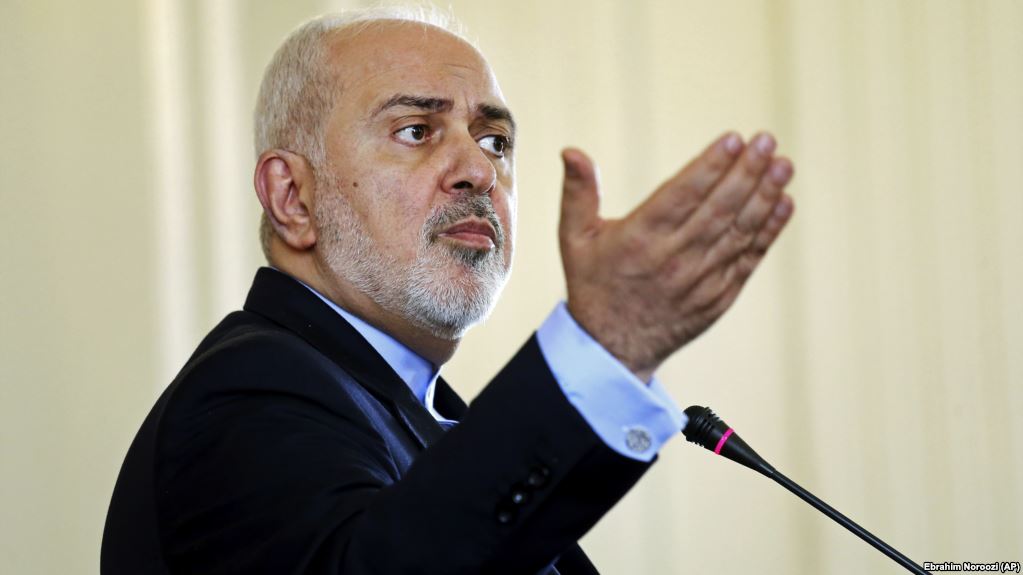
The Iranian Foreign Minister Mohammad Javad Zarif said that leaving the Non-Proliferation of Nuclear Weapons Treaty (NPT) is one of many options available to Iran.
In response to a question from an IRIB reporter with regard to Iran exiting the NPT, Zarif said: “The options of the Islamic Republic are numerous, and exiting the NPT is one of them.”
The NPT was signed 49 years ago by many countries, to prevent the proliferation of nuclear weapons and to ensure the destruction of existing nuclear arsenals.
Israel is not a member of the NPT, yet it says it hasn’t threatened to destroy any other country. In addition to Israel, some countries like Pakistan that have reached military nuclear capability have not signed the NPT.
Zarif’s remarks were made one week after the news broke that the US might accuse Iran of violating the NPT.
A few days after the US Department of State released its 12-page annual report regarding the commitment of countries to their nuclear obligations, news agencies started analyzing the details mentioned in this report with regards to Iran.
The report is to pave the way for the US administration to accuse Iran of violating the NPT and to increase pressure on the Islamic Republic.
Iran had previously talked of leaving the NPT when the US pulled out of the nuclear deal and re-imposed oil sanctions against Iran.
Last year, Hossein Salami, who was the IRGC second-in-command at that time, said that the IRGC had proposed to the government to tell western officials that Iran would pull out of the nuclear deal and the NPT as well as that Iran would resume its nuclear activities without any restrictions. He added, “Western countries will then have to yield to our authority”. Salami has been recently appointed as the IRGC commander.
Radio Farda
Qassem Soleimani: Negotiation with the US means surrendering
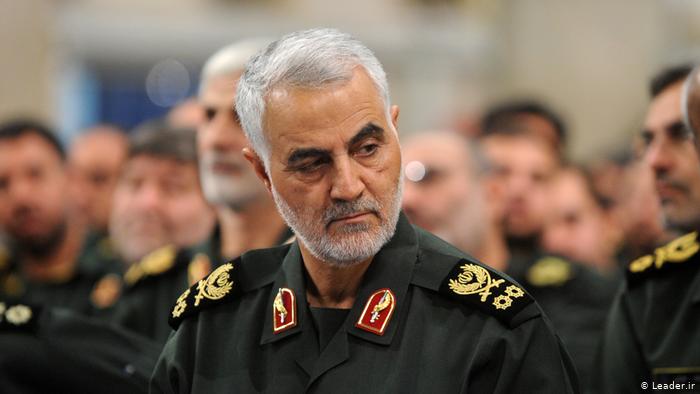
The Commander of IRGC Quds Force Qassem Soleimani said the “enemy” is after forcing Iran to sit at the negotiation table by imposing economic pressures, stressing that “such a negotiation means total surrender”.
Soleimani stressed that the people must know that “negotiation with the enemy under the current conditions means surrender, and we will never give in to such humiliation.”
Iran’s parliamentary speaker Ali Larijani, too, called negotiation with America “naïve” and a “strategic mistake”, asserting, “The US officials must know that they are dealing with a tough opponent”.
In recent days and particularly after the remarks of Iran’sn Foreign Minister Mohammad Javad Zarif about a possible prisoner swap between the Islamic Republic and the United States, the possibility of negotiations between the two countries has resurfaced. Meanwhile, Zarif’s suggestion in this regard has been interpreted as a clear effort to create a communication channel with the White House.
John Bolton, the US National Security Advisor, reacted to Zarif’s remarks, calling the accusations brought about by Iran’s Foreign Minister “ridiculous”. He called Zarif’s interview a “propaganda” that was carefully planned by the Islamic Republic’s officials.
Bolton added that the “concern” of the Islamic Republic’s officials shows that the US maximum pressure policy has been effective.
Deutche Welle
Rouhani claims Iran has six hidden ways to export its oil
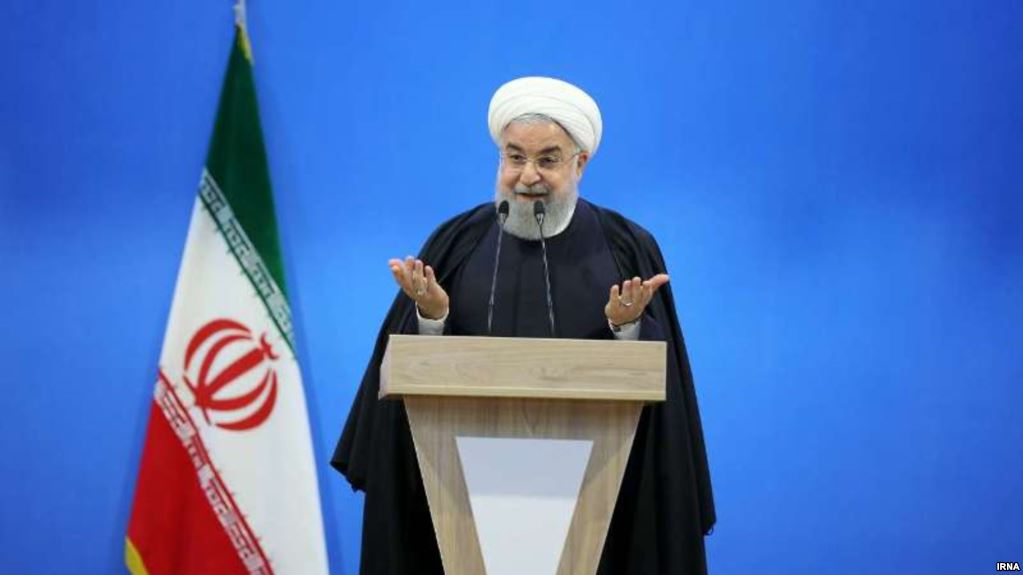
The Iranian President Hassan Rouhani has claimed that Iran has “six ways” for exporting its oil about which Americans know nothing about. “We must export oil; Iran’s exports are not done via one way only,” remarked Rouhani, “we have six other ways about which Americans know nothing at all.”
He emphasized that oil and gas exports have been a “large source of Forex income” for Iran, Rouhani stressed he would not let the United States bring Iran’s oil exports to zero. “Americans will see in the upcoming months that we will continue our oil exports,” he asserted.
The United States announced recently that it would not renew any of the sanctions waivers granted to the countries to buy oil from Iran, including China, India, Turkey, Japan, and South Korea.
Pointing to those countries, Iran’s President said some countries “retreated” in reaction to US pressure and this has led to more pressure from the US.
According to reports by Iran’s Supreme Audit Court, 40% of Iran’s economy is dependent on oil. Moreover, the oil used to contribute to 60 percent of Iran’s exports before the US sanctions.
Nonetheless, some of the Islamic Republic’s authorities have claimed that the US refusal to renew sanctions waivers would not create any problems for the country’s economy. They also believe that Saudi Arabia and the United Arab Emirates cannot replace Iran’s oil in the global markets.
Recently, the CEO of Iran National Oil Company said that foreign companies could receive crude oil for goods and products that they sell to Iran if they are willing to do so. Massoud Karbassian added that those companies that want to trade with Iran could invest in Iran’s oil industry, and receive oil from Iran in return.
Radio Farda
IMF predicts 40% inflation rate for Iran
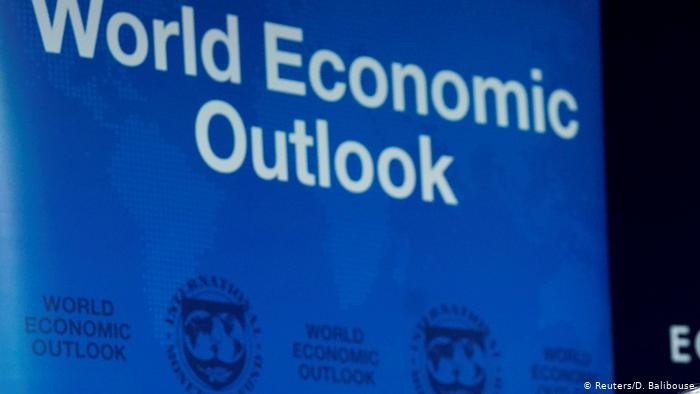
Jihad Azour, the Lebanese Director at the International Monetary Fund (IMF) for the Middle East and Central Asia, announced that due to the US sanctions on Iran’s oil, the rate of inflation in this country might exceed 40%. This rate of inflation is the highest in Iran since 1980.
The value of the Iranian rial vs the US dollar has already dropped about 70%. Azour said that economic recession is expected to continue for the second consecutive year in Iran, adding that the country’s economic conditions will continue to deteriorate.
According to Azour, the intensification of the US sanctions and it not renewing waivers for buyers of Iran’s oil will obviously make Iran’s economy face deeper recession and will result in an increase in prices.
The crisis in Iran’s economy has culminated in a severe drop in the value of its national currency vs. foreign currencies. This process has intensified in recent days, resulting in a huge difference between the official prices of the US dollar and its price in the free market.
The IMF, in its annual report on “Global Economic Prospects” which was published in early April, has predicted that Iran’s economic growth would be minus 6%.
Some experts think it is possible that with the intensification of the US sanctions and its restrictions, that oil exports of the Islamic Republic will decrease more. Meanwhile, Iran’s New Year budget has been drafted based on exporting 1.5 million bpd. Drop in oil exports to under 1 million bpd will create a severe budget deficit and shortage of foreign currency revenues for the Iranian government. If so, an increase in economic recession and a rise in inflation are not far from expectation.
Deutsche Welle
Radio Zamaneh
Tens of Iranian workers arrested on Workers’ Day
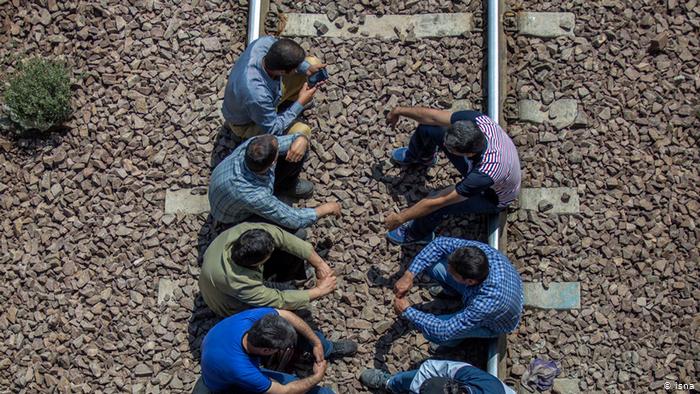
The gathering of workers on the International Workers’ Day in front of the Iranian parliament building on May 1 turned violent, and many protesters were arrested. Independent workers unions had called for the gathering.
In addition to workers, a number of teachers, students, and retirees also took part in the gathering as well. During the gathering, the protesters chanted slogans such as: “The government commits treason, the parliament supports it!”, “Workers, teachers, students must unite!”, and “Bread, work, freedom are our inalienable rights!”
Fair wages, job security, permanent contracts, payment of unpaid wages, the right to have unions and to hold gatherings were some of the main demands of the workers.
A few days earlier, another gathering held in a park in Tehran turned violent, and security forces arrested a number of labor activists. In recent weeks, there were reports of labor activists being threatened, summoned and arrested by security entities.
Hosein Zolfaghari, the Security Deputy of the Interior Minister, had warned on the eve of the Workers’ Day that workers’ gatherings would not be allowed to enter the streets.
In the past year and a half, there have been many workers’ protests all over Iran, many of which ended with security and law enforcement forces interfering.
The worker’s issues are not limited to livelihood. As a result of a poor economy, they do not have job security. Each time a factory or a manufacturing unit is shut down, hundreds of workers lose their jobs. If workers protest against their poor condition, they face security charges.
Due to economic pressures in 2018-2019, many manufacturing units either shut down or are working with minimum capacity.
Deutsche Welle
BBC Persian
